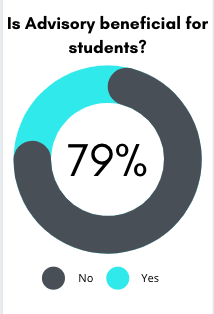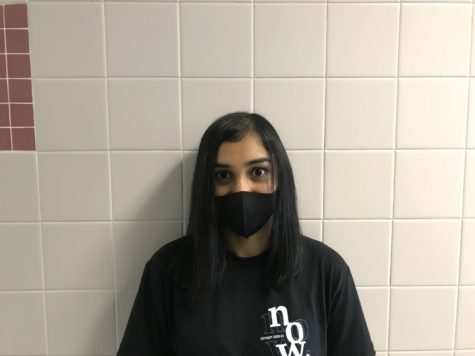Advisory enriches social-emotional learning

According to a poll conducted on the Chantilly News Instagram on Sept. 7, out of 99 students polled, 79% don’t believe advisory is a beneficial class.
October 15, 2021
Blank stares answer teachers’ questions. Eyes glance at phones hidden under a desk. Advisory often becomes an awkward and unpleasant atmosphere unfit for learning. A class designed for discussion and human connection has become a subject of complaint and annoyance among students.
“Advisory just feels like another thing we have to do and kind of unnecessary and awkward,” senior Manya Phutela said. “Sometimes there’s a point, like social-emotional learning for the students that aren’t aware of mental health stuff, but it’s just a repetition of things we learned in fifth grade.”
Many find the lesson plans ingenuine and superficial; an Instagram poll of 99 students on Sept. 7 shows that nearly 80% find Advisory to be unhelpful and unconstructive.
It also doesn’t help that Advisory comes at the cost of extended LS, which is replacing the much-loved Charger Time. Because contact tracing has prevented students from going wherever they want to hang out with friends and start early on their workload, LS was deemed the next best option to keep track of students. Once a week, though, students attend Advisory instead of a free period.
Fairfax County Public Schools (FCPS) didn’t devise these 45-minute lessons as an attempt to make student life miserable. According to student services director Robyn Lady, the root of Advisory lies in the issues it was created to solve—the majority of the student body is stressed and not dealing with it.
“When we went into the pandemic last year, we encountered a situation where the social-emotional health of a lot of students was not as strong because of the isolation,” Lady said. “All the research indicates that the more adults you put in a young person’s life in a positive situation, the more likely that student is to thrive, succeed and learn how to handle situations that come their way.”
FCPS implemented Advisory in middle and high schools to help students get to know each other, have a teacher they can seek help from and ease the burden of school life. The reason Advisory doesn’t seem to be working is because students won’t let it.
“I think the lessons that we’ll be implementing through Advisory are important, but it’s always hard to teach students who show you that they don’t care,” precalculus teacher Christina Prishack said. “[Advisory] is definitely challenging, but I just approach each week with a fresh new perspective, hoping students will gradually feel more comfortable sharing their thoughts.”
Despite student complaints, Advisory is not going away. Thus, students should take advantage of it. Rolling eyes and complaining with friends only makes the class more miserable.
“It’s good to have a group of people you can count on,” Phutela said. “I also actually like some of the videos they show you because they’re kind of cheesy but also kind of cute. I think that if it’s an important message, Advisory could be really helpful.”


